
An interview with Milica & Nemanja
Badin’s dynamic duo, Milica Aleksic and Nemanja Petrovic, have been rocking the stage and representing our company for the past few years in numerous domestic and foreign conferences: Digitalk in Nis, Data Science Conference in Belgrade, Devoxx in Belgium, WeAreDevelopers in Berlin, Digital Labin in Croatia, to name a few.
Through the conversation with Nemanja and Milica, we wanted to reveal what being part of such events feels like, and why conferences are an exceptional opportunity for both professional and personal development. In the second part of the blog, you’ll find out how to apply, choose a topic, prepare a presentation, and inevitably own the stage.
When did it first occur to you to sign up for a conference? What’s the story behind it?
N: My story began around 8 years ago when I started the Nis Java User Group together with a colleague from my previous company. The desire to share knowledge and grow led us to our first meetup in the Deli co-working space in Niš. The only problem was – we couldn’t find any lecturers! Instead, we did the only reasonable thing – we took on the challenge ourselves.
My first international conference was WeAreDevelopers in Berlin. Conferences are much more demanding in terms of organization and preparation than meetups, and they usually take longer to organize and execute.
M: I’ve been interested in IT conferences for a long time, and I usually try to stay informed via social media. My journey begins with a Twitter DM. I reached out to the organizer of the React Native conference, and after receiving the invitation to participate, I submitted a topic and got accepted.
The React Native Europe 2021 conference was held online due to the pandemic, my topic was React developers in a wild world of native apps. The whole event was streamed live with real-time Q&A, and communicating directly with the leaders of React Native’s Core Contributors was an amazing experience for me.
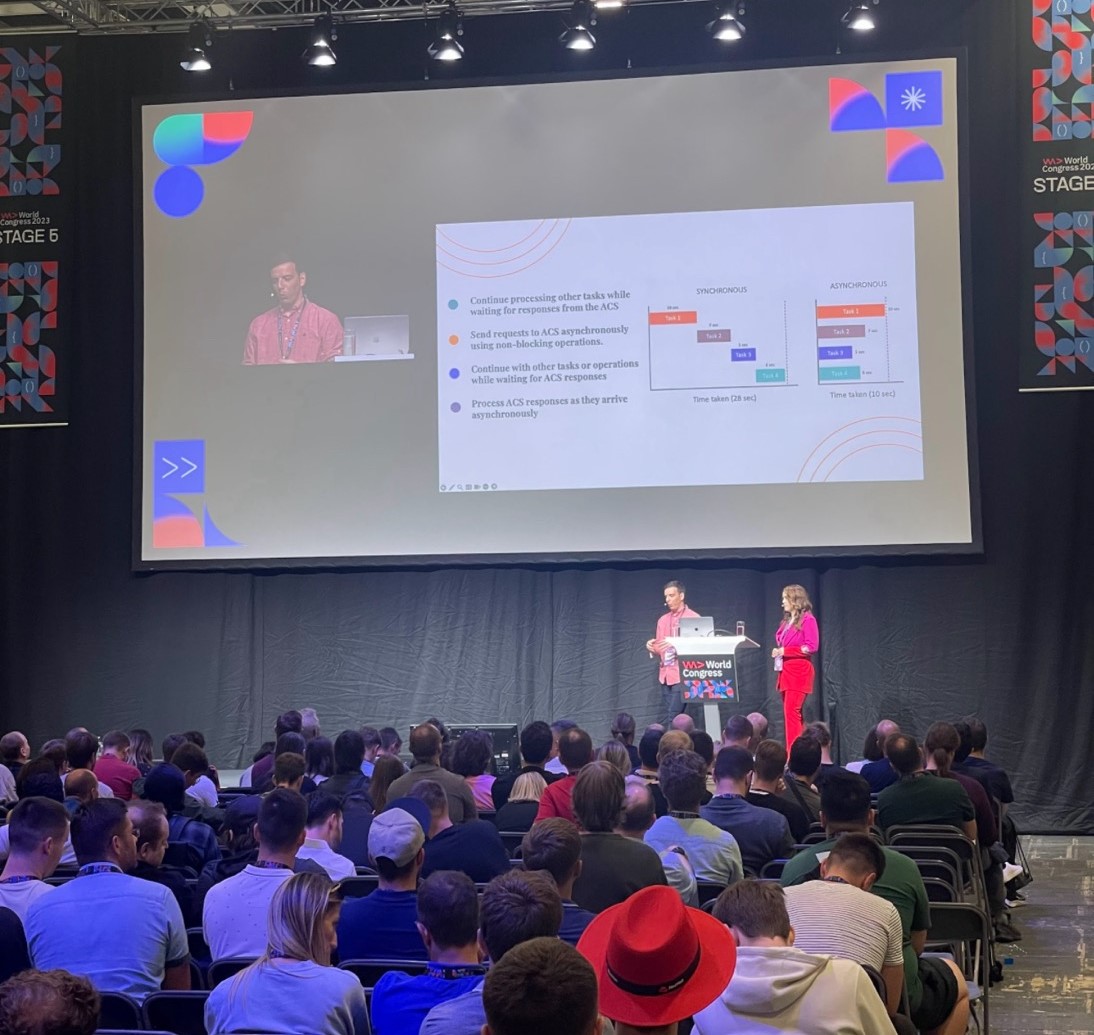
What does the application process look like?
M: Every conference publishes a “Call for papers” on its website. There you need to fill in your information, and biography, suggest a topic you want to talk about and describe the content. After the application period closes, the organizers review the topics, and inform you whether or not you will be participating, including what the next steps are.
Aside from the formal application process, the organizers will invite you as a speaker directly if you participated in similar conferences.
N: The Devoxx conference in Belgium, had 800 applicants, of which only 200 lecturers were selected. On the other hand, the organizers of the Digitalk conference in Niš, contacted potential lecturers themselves without a formal application process. The official language for Digitalk was Serbian, whereas most conferences require the presentations and lectures to be in English.
What determines whether your topic will be chosen?
M: The theme of the conference largely determines which topics will be chosen. For example, a conference like React Native Europe focuses on topics related to React Native, while the WeAreDevelopers conference covers various technical and non-technical topics.
N: Many conferences that are not strictly related to a particular technology have an annual plan that is often highlighted in the call for lecturers.
I like to talk about something I’m working on at the given time – for example, I’ve taken on a project for AI within my studies and wanted to promote it, which resulted in me presenting this topic at several conferences and also attaining resources from the state.
Have you ever had your topic rejected and how did you handle it?
M: It happened. Rejection is a normal part of the process, especially when it comes to large-scale conferences – there is a lot more competition. It can also happen when your topic simply does not fit into the conference’s program at that moment.
N: When our topic gets rejected, the organizers often offer us certain benefits, such as a discount on the ticket, sometimes even a free ticket.
How do you prepare for a conference?
M: The first step is to research relevant material – if you know your topic, you can start working on your presentation. The content should be suitable for the audience you are addressing; don’t forget to prepare examples and demos, this will help them understand you better.
After that, all that is left is for you to rehearse everything nicely for the big day.
N: I would also add that time-boxing is crucial – taking longer than planned is not allowed.
Usually, you are given a 30-minute slot, including 5 minutes for questions at the end.
My advice is to prepare the presentation well and keep in mind the main points of your presentation, so you don’t get sidetracked during your lecture.
M: Yes, the timeline is very important to the organizers, and exceeding the allotted time may affect the schedule of the entire conference and interfere with other lectures. That is why time is strictly monitored so everything goes according to plan.
Do you have stage fright and how do you deal with it?
M: Everyone has had stage fright at some point. Personally, I don’t have excessive stage fright, but I experience a slight unease due to a sense of responsibility to present myself and my company in the best light.
N: To be honest, I have it. I prefer to give live lectures, and in those moments, it helps me to hold something in my hands, like a marble, to reduce the feeling of nervousness.
Which conference has made the biggest impression on you so far and why?
N: I liked Digitalk in Nis. Although it is not strictly technical-oriented but focused on business, product and similar topics, I think it is very well organized. Also, I would single out Digital Labin in Croatia – it was an amazing experience.
M: It’s WeAreDevelopers in Berlin. It has 300 to 500 lecturers each year, including programming language creators and industry leaders, and over 10,000 developers in the audience. This conference provides a unique opportunity for learning and networking. Being able to go on stage and speak directly to industry leaders is an amazing experience.
How do you manage to stay organized and balance conference preparations, and business and personal commitments?
N: It’s very challenging, but I got used to that pace. I am an organised person and that makes it easier for me.
M: I have to admit that it is not always easy, but with good organization, planning, and prioritization, everything can be achieved. For example, if the conference lasts for two days, you should be prepared to arrive at least one day early and return a day after the conference is finished, so that you have enough time to prepare, rest and enjoy the conference yourself.
Does participating in conferences help your professional and personal growth and how?
M: On a professional level, conferences are crucial for keeping up with new technologies and industry trends. The opportunity to meet the creators of programming languages and talk to them about the challenges they face, and how they solve them is truly an amazing opportunity.
On a personal level, it inspires and motivates me to do my job as best as possible.
N: Preparing the lecture for a conference encourages me to do more research on a topic.
Conferences allow you to meet a lot of industry experts, and they open the door to new opportunities. It’s enough to be part of it and hear useful information, others’ experiences and insights. For example, participating in “Invite only” events allows you to keep in touch with the latest trends and be at the forefront of technological development.
Do you have your colleagues’ support?
M, N: We do, and it means a lot to us. When we give online lectures, everyone from the team is happy to join and support us. After the presentation, we always receive feedback. Also, our colleagues often help us to prepare the presentation itself, while the company supports us and helps organise the trip.
Do you have any advice for those participating in a conference for the first time, or a message for people who want to, but don’t dare to take the first step and apply?
M: Be brave and open to new opportunities and new experiences. Also, be persistent when your application doesn’t go through on the first or even the fifth try – and it will happen. Don’t let it demotivate you because it is worth it. When you get the opportunity, it’s important to believe in yourself, you deserve to be there, and believe in the importance of what you have to share.
N: My advice is also to start with smaller gatherings or meetups. It’s a great way to get a feel of the atmosphere and experience public speaking and how it works for you.
What are your plans for the future, can we expect to see you at another conference any time soon?
M: I plan to continue being active on the conference scene, I am actually considering a few topics and events at the moment. I can’t announce anything yet, but I will continue to share knowledge and present.
N: I am planning to, but maybe in the future, my focus is currently on finishing my master’s degree. If something good turns up, I’m always open to challenging opportunities.
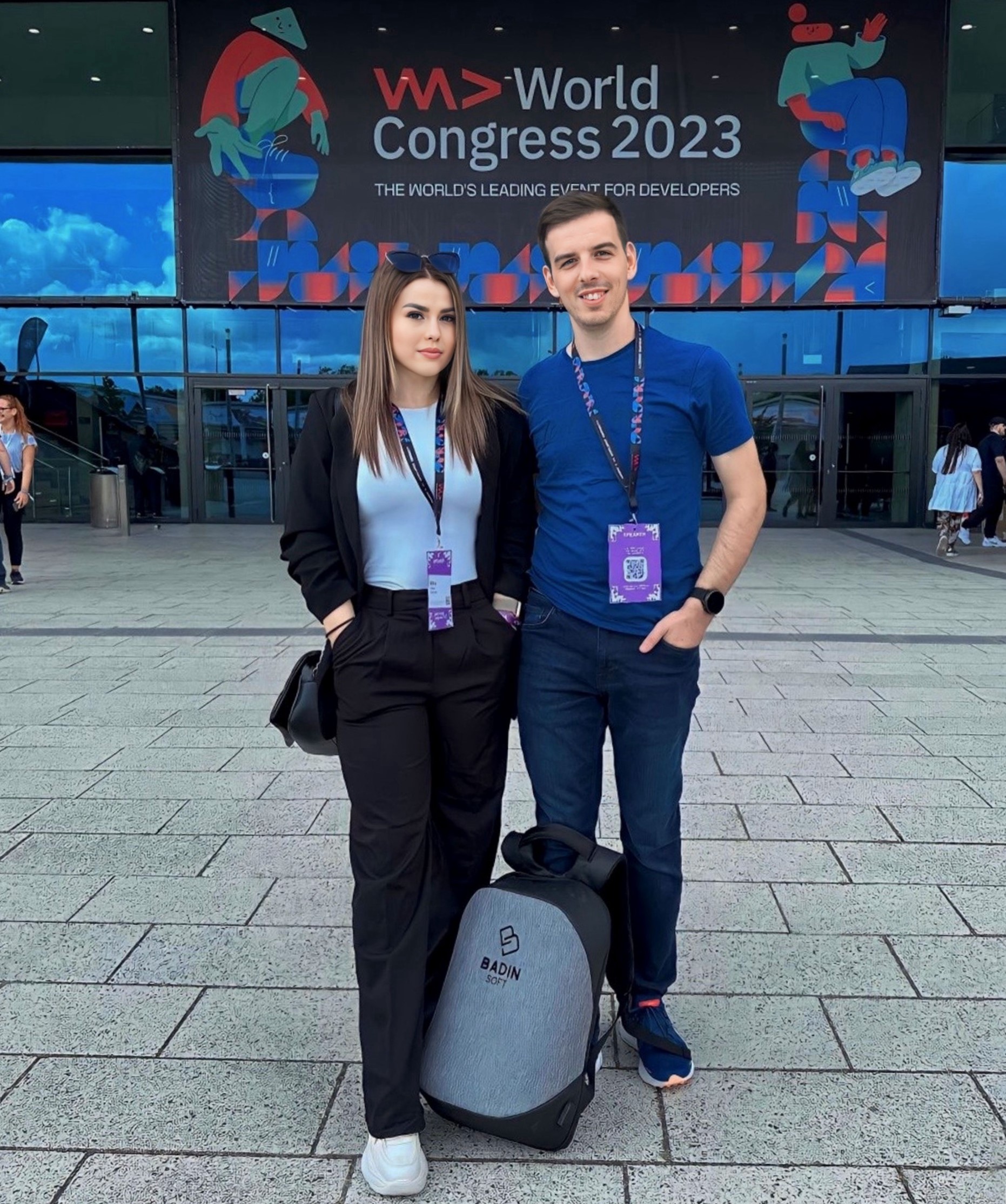
You may also like
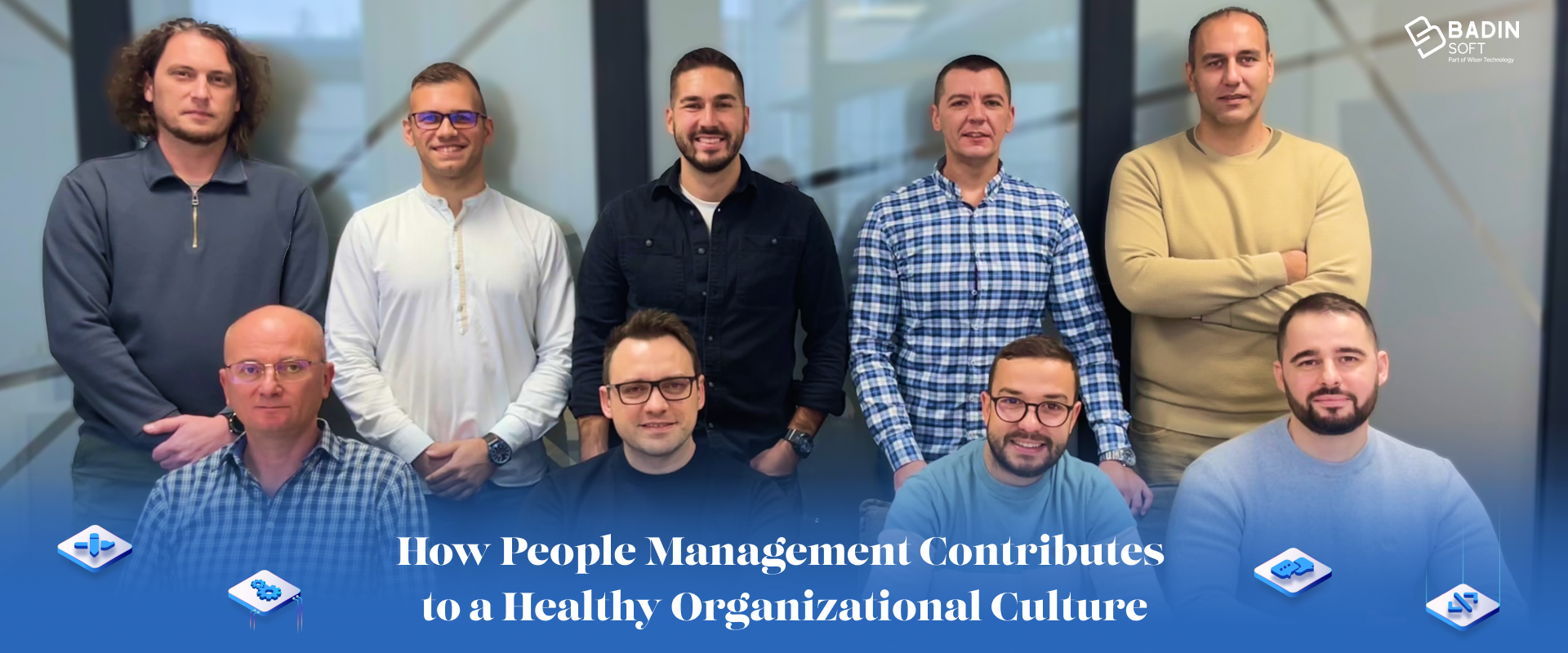
How People Management Contributes to a Healthy Organizational Culture
November 14, 2024

Learning by Doing: The Growth Story of our Frontend Juniors
September 3, 2024
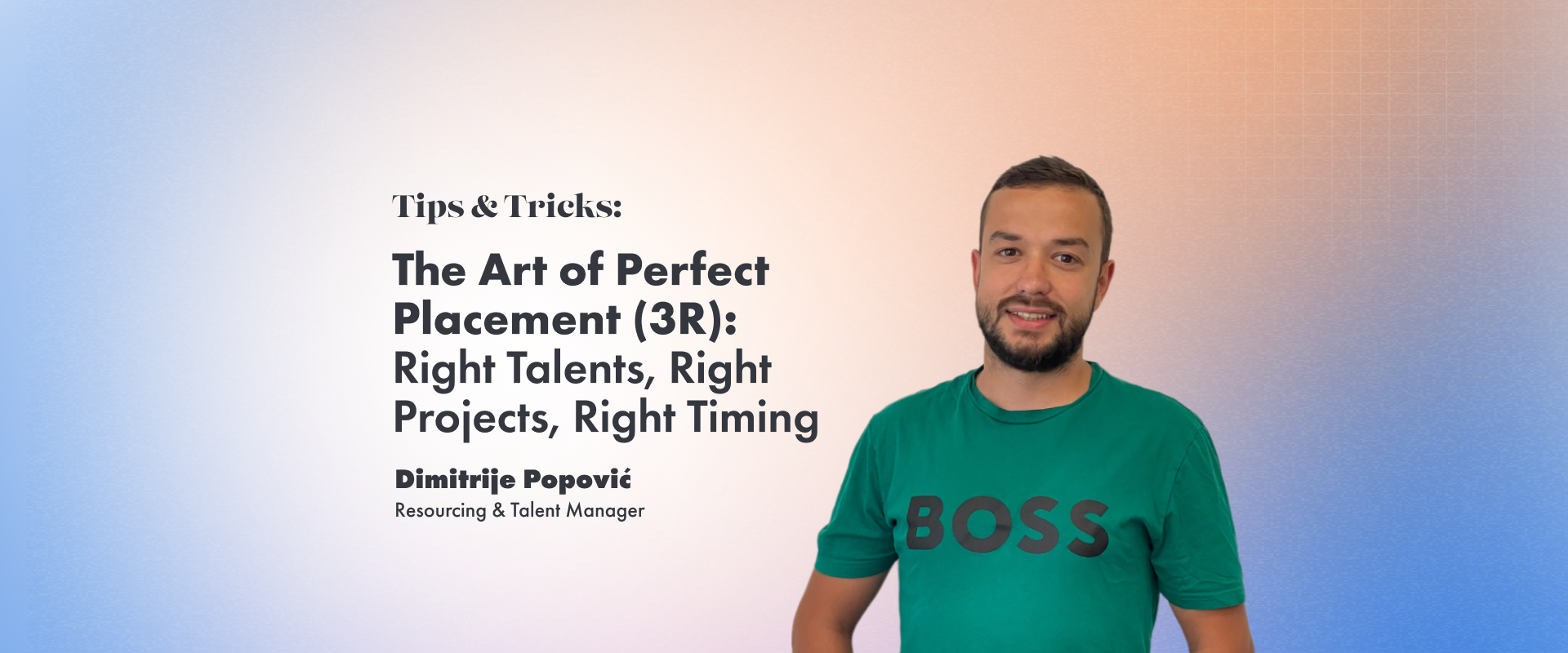
The Art of Perfect Placement (3R): Right Talents, Right Projects, Right Timing
August 20, 2024
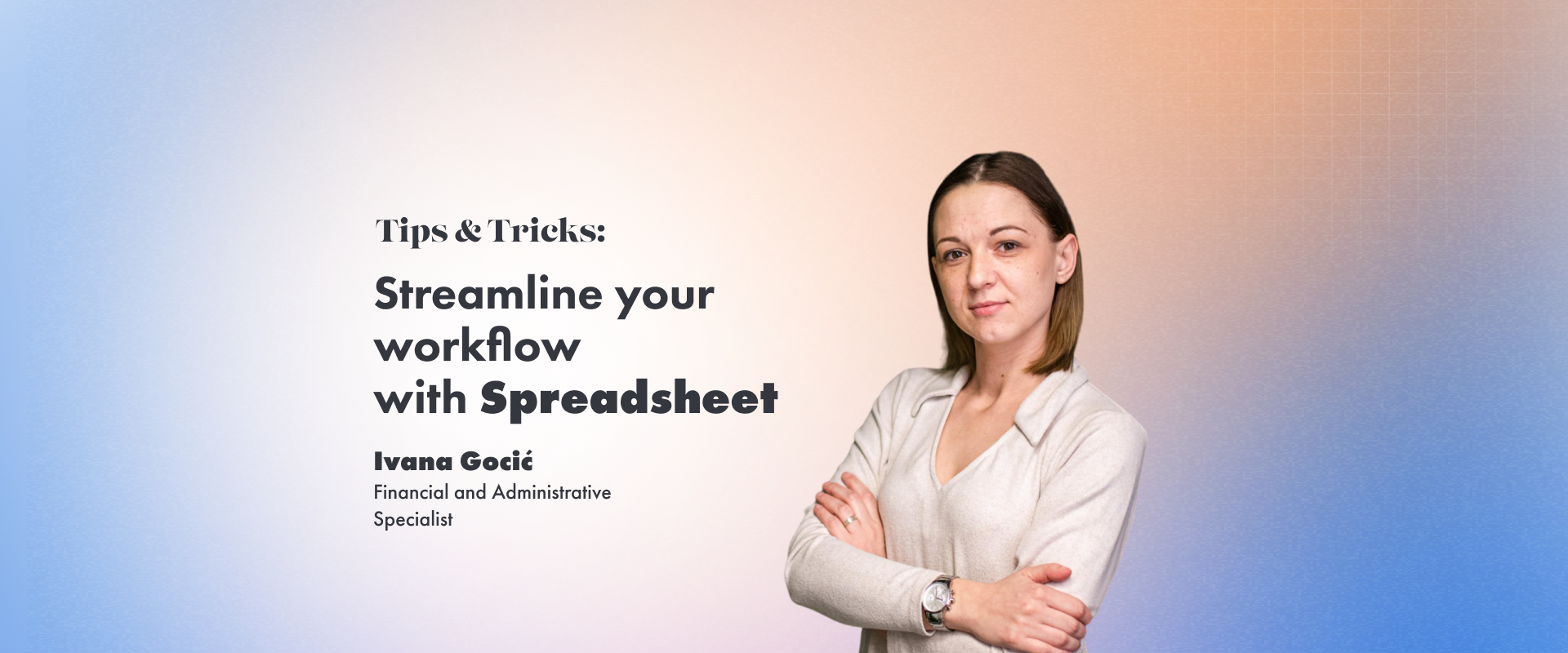
Streamline your Workflow with Spreadsheet
July 19, 2024

Mastering Business Development in the IT industry: Essential Tips and Tricks
April 10, 2024

From the Code to the Conference
March 7, 2024
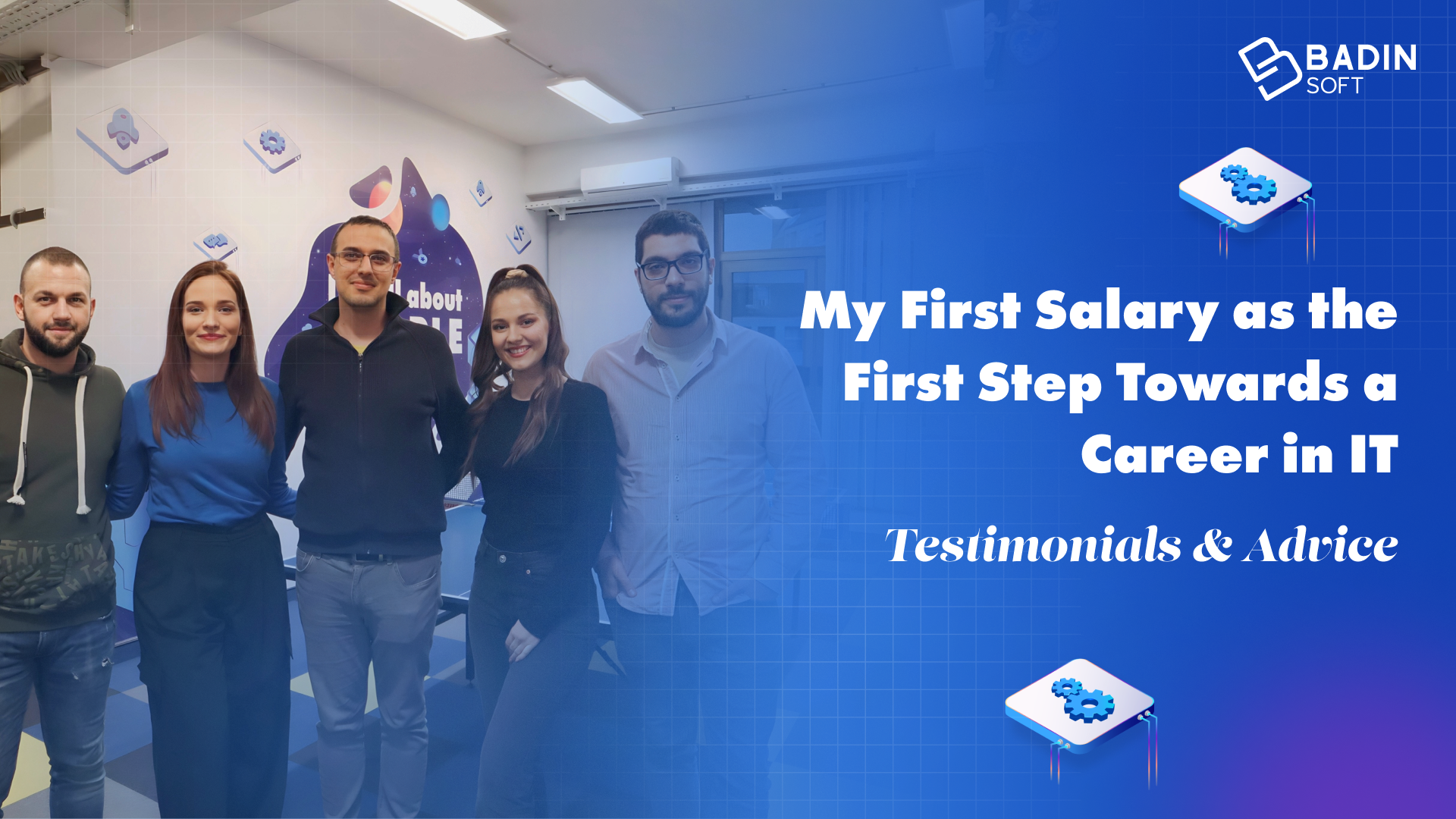
My First Salary as the First Step Towards a Career in IT: Testimonials & Advice
December 4, 2023
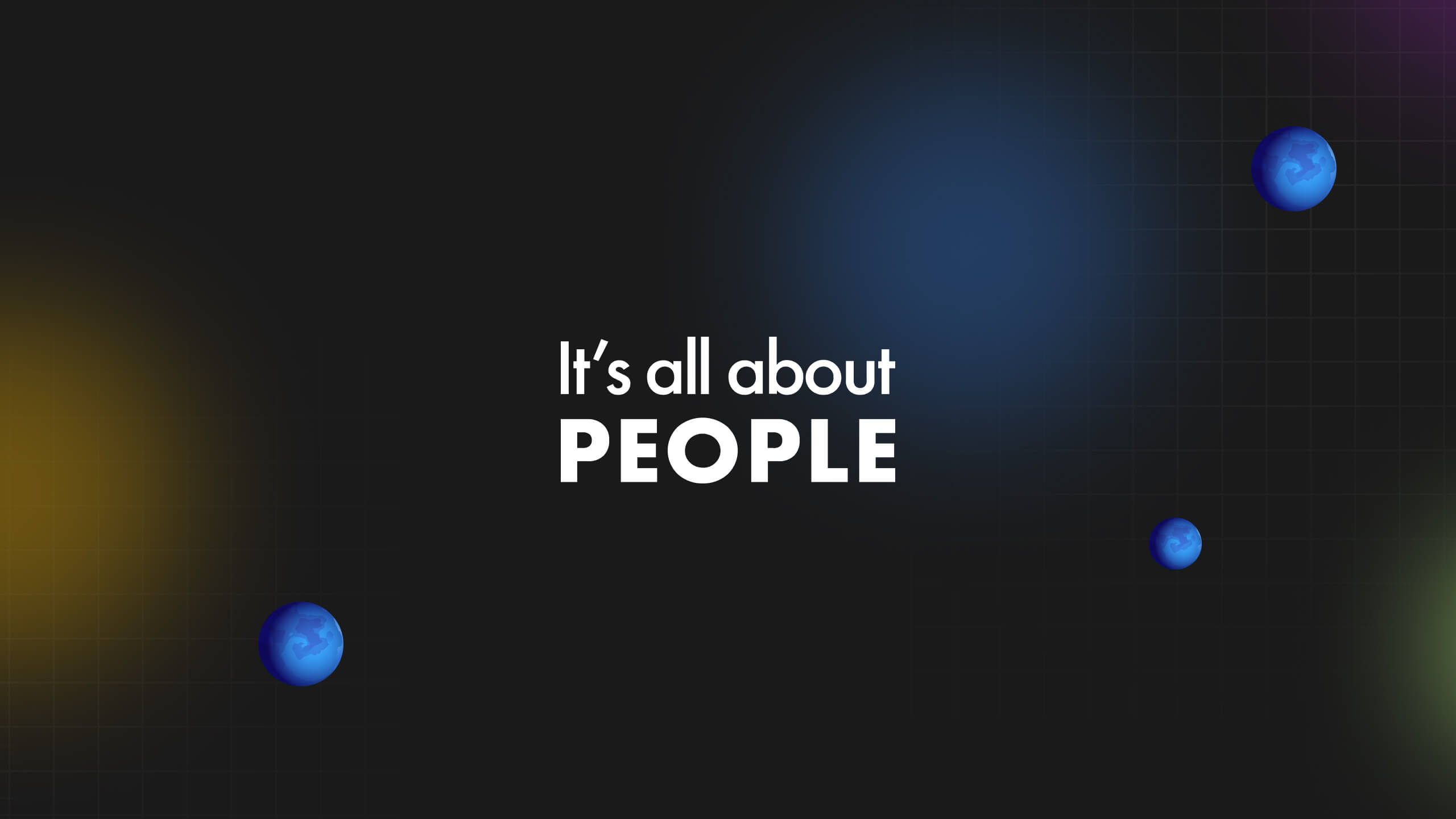
Nurturing Growth Through Mentorship: Three Teams, One Name
October 9, 2023
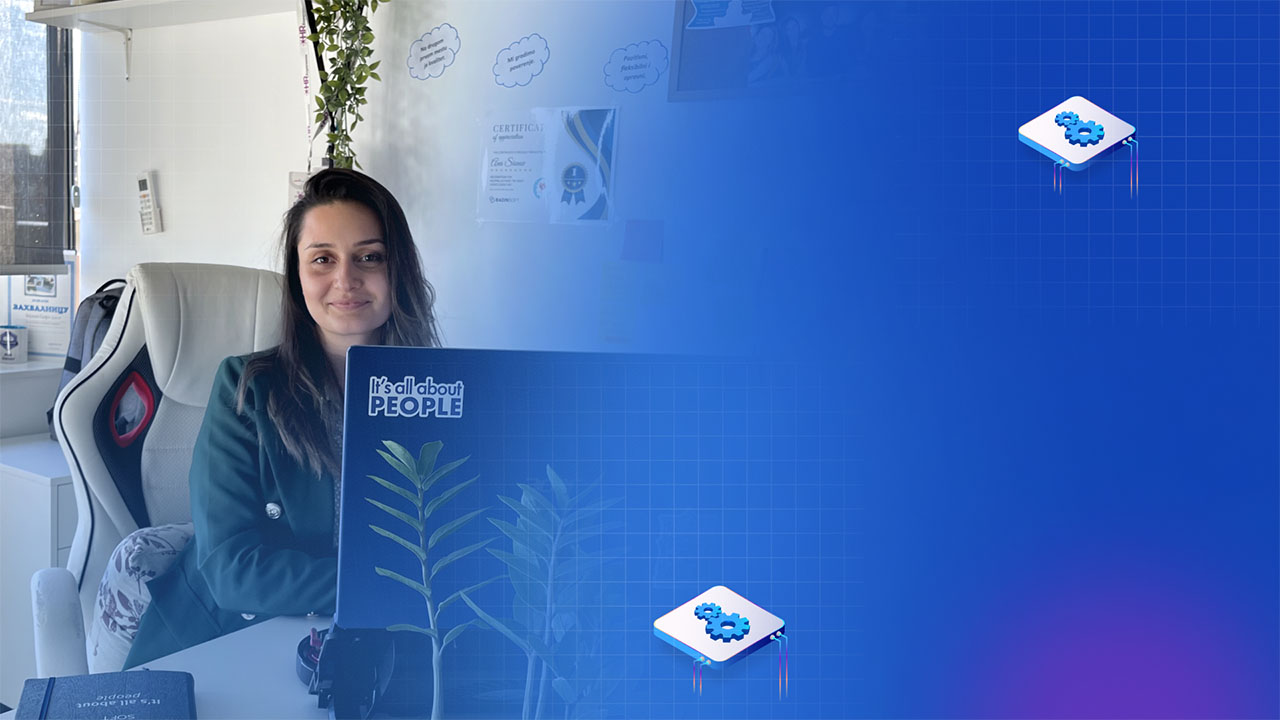
Mirror Neurons: Do They Help Us be Better Leaders?
April 3, 2023
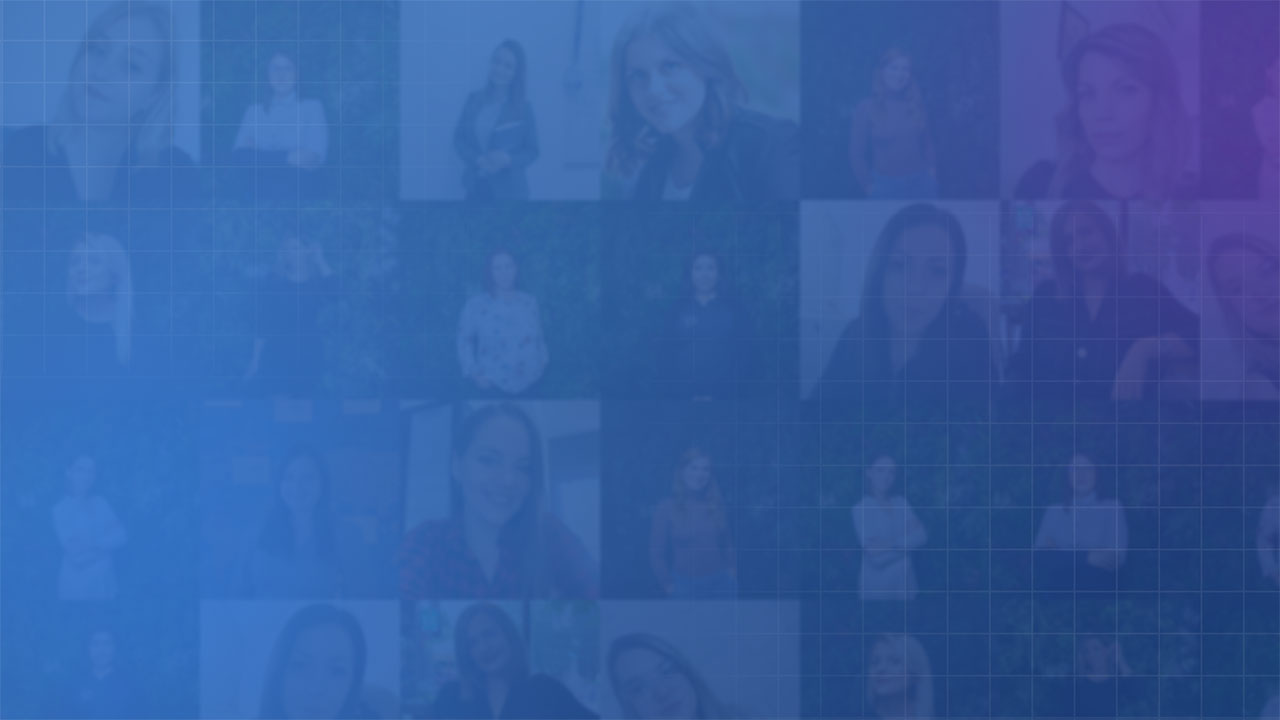
Saveti naših koleginica – Šta biste rekle mlađoj verziji sebe?
March 8, 2023




